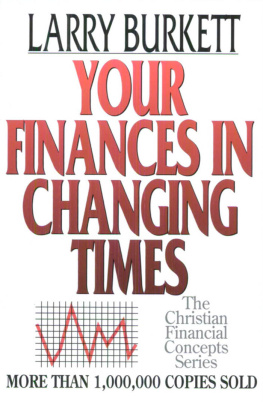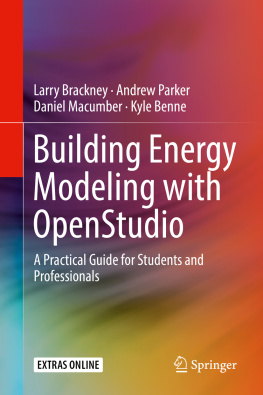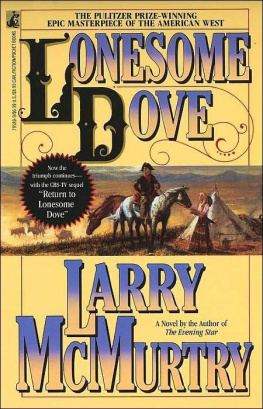Prologue
In Perspective
In this book, the personal pronouns I and me are used extensively, but this book is not about me. It is, however, from my own perspective. Its my knowledge of those at Corvette, their successes and failures, and their personalities. The thoughts are from what I saw at the time and our interaction.
In a few places, I do take credit for personal accomplishments. Most of the time, its the leader who gets the credit, but great leaders have followers who contribute much. Each person who contributed to building the dream have their own successes. I know some but most I dont. I know a few of mine and will share them. Human nature is to take some credit while better judgment insists on not being a braggadocio. Its a fine hair to split.
As a midlevel manager, I was a mere cog in one gear of a massive drive train. It is not accurate to say my function was not great because without my own cog , certain things would not have happened. The gear turned as I meshed with other gears, and without all those other gears to mesh, things would not have worked.
I, as surely most, saw myself as necessary. General Motors (GM) taught that each of us were indispensable whenever we asked for time off. As an example, when I was welder maintenance supervisor at Chevrolet Indianapolis, we worked seven-twelves and as much as sixteen-hour days much of the time. When I asked for a Saturday off to visit with my brother who I hadnt seen in twelve years, my superintendent said, Bring him to work with you! To get that one day off, I called in sick and was chastised for it as I was indispensable.
My own department head, Dale Byam, told me I was indispensable. We all were! In 1979, I was promoted to Fisher Body Headquarters. About six months later, I stopped by Dales office to say hello . As I walked in, he looked at me in a familiar manner. He should because he had been my boss for about ten years with daily contact. As I stopped in front of his desk, Dale said, Im sorry. I forget your name.
I went from being indispensable to unknown and unneeded in six short months. That attitude for the most part was GMs attitude as well as at Corvette with some managers. Even when those mightier than me knew me well, their pretense was I was insignificant. Of course, when my expertise and body were needed, I was always well-known.
That was the situation for most lower and midlevel managers. However, those in the high potential accelerated program were of the category where they always know your name, to quote the sitcom Cheers.
The high-pot program, if it was real, was a secret from those not part of staff. Basically, at Corvette, like all GM, higher-level managers picked future winners. Even college cooperative students were identified with high potential . Its likely that even those high-pots never officially knew they were, but with frequent promotions, it wasnt hard to decipher who was!
I dont know if I was ever high potential, but over the years, I was offered several promotions while at central office and to return there. I turned them all down because to be a higher-level manager, it required more commitment than what I was willing to have. At the Corvette plant, I did my job well because if I was to succeed, it was my desire that it would be because of my own accomplishments.
Norm Whitehead, the plant engineering director, once told me, Larry, if it was based on merit, youd be the first I would promote, but you dont network. Norm also went on to say, Your name always comes up, but for some reason, Cliff Mitchell shoots you down! Im not surprised at that. I never networked with Cliff.
Networking is the code word for friendships and other relationships. Ive seen many. Norm even told me I wasnt part of networking because You dont hang around after work shooting the bull with us!
I was never part of the network at GM. My own camaraderie was with the hourly folks because that was my upbringing. My own father, Elston Herrin, was a shipping employee in production. That is my heritage, and that is where I stayed. Even among salary workers, there were very few with whom I had close friendships.
My thoughts on Corvette then are more of a peon than of a manager. Im comfortable that I could have moved up the ladder but satisfied I didnt!
In order for managers, even at Bowling Green, to get ahead, they are required to devote themselves to the car and to the plant. It was my choice to devote myself to my job, do it to the best of my ability, but my own time was directed more on home, church, family, and life. I could always do my job without overtime, and my choice was to be dedicated to my family.
There were two reasons for declining promotions: one was Detroit, and the other was life outside General Motors.
Like me, there were many salaried employees who had the same values. Each loved their jobs, loved the car, and loved the security, but they knew there was life outside Corvette. Each of those cogs in the gear made Corvettes possible, but their cog was a fine tooth, and unless they were high-pots, their cog stayed that way.
There were many dedicated small cogs. I think of Earl Redd and Gene Gore of maintenance, Bob Heidbrink of industrial engineering and production, and of many, many hourly employees. Managers were to be the minds on our gear and the hourly employees the brawn on the labor gear. Both those gears made the plant turn, and it turns out the welder is as important as the plant manager.
Im not a Corvette buff, but I still love Corvettes. I love them, but we are not on romantic terms. I took pride in the car and the plant. I became too acclimated to Corvettes. My spark never stayed ignited because of overfamiliarity. I am also a dreamer , but my own dreams were invention. My forte was being outside the box GM built. Therefore, excuse all the I s when reading. The dream is not mine but of all those who believed in Corvette.
In order to prevent the reader from becoming brain damaged with functions, parts, processes, or duties, the order of the madness herein is casual. To prevent the reader from a sudden case of narcolepsy, casually related events are entwined with technical information.
This allows the readers to enjoy the dream as they learn. Rather than becoming a nightmare of counting sheep, people and programs pop in and out of the dream. About the time the person tires of counting those employees of Corvettes House of Peculiar People, to paraphrase the name of a recent movie, the story will shift to other topics.
Sometimes the reader will tire of the scenery. At that time, the material might change from processes to methods or from processes to special programs. Think of this as me explaining a vision in printeach new scene erupts and then fades as the original dream progresses.










